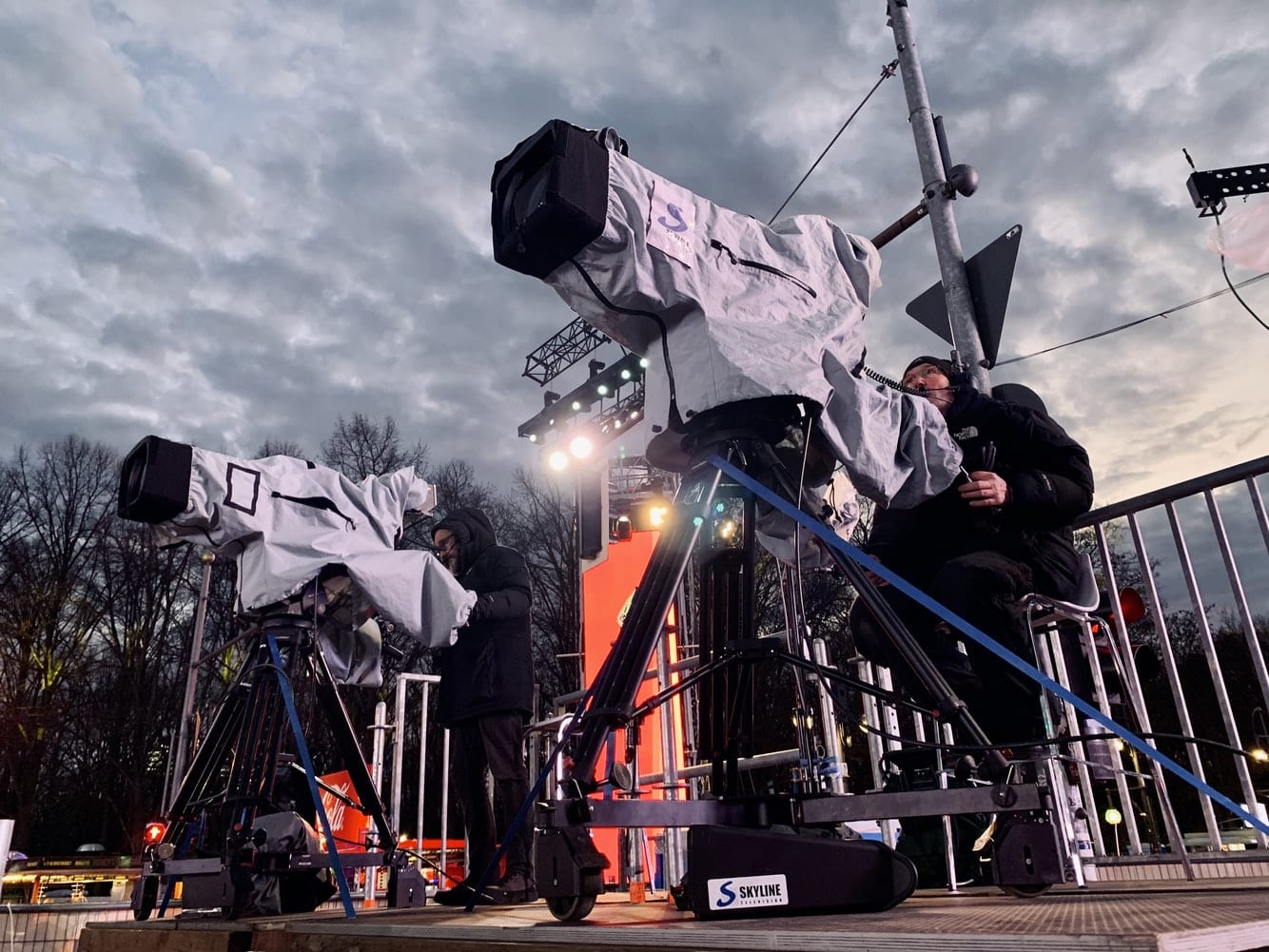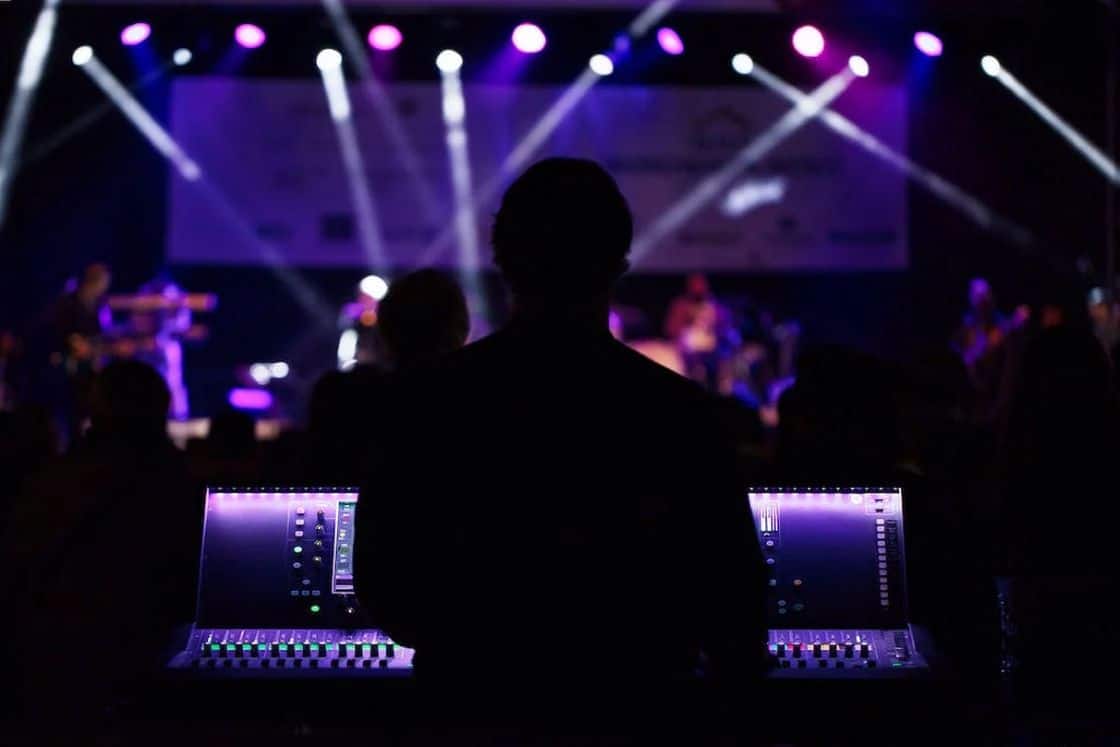Understanding Event Production: Why It Is Very Important for Effective Gatherings
Event production plays an important role in forming successful events. It involves cautious preparation, coordination, and execution to ensure every information aligns with the event's vision. This procedure not just improves attendee experiences however additionally assists in meaningful links among individuals. Understanding the complexities of event production can greatly impact the general end result. What are the crucial elements that add to a successful event, and how can they be successfully taken care of?
The Role of Event Production in Producing Remarkable Experiences
Although many elements add to the success of an occasion, event production plays a crucial role in crafting unforgettable experiences. This diverse procedure incorporates numerous components, including preparation, logistics, and implementation. Reliable event production warranties that every information aligns with the overall vision, creating a seamless flow that captivates participants. By collaborating timelines, taking care of sources, and looking after technological elements, event producers establish a foundation for impactful experiences.Moreover, they curate environments that resonate with the target market, boosting involvement and psychological connection. From selecting suitable places to incorporating ingenious innovation, the options made during production greatly affect just how guests view and remember the event. By focusing on top quality and interest to detail, event production transforms regular gatherings right into phenomenal minutes, leaving long-term perceptions. Ultimately, the competent orchestration of these components specifies the significance of an event, showcasing the value of specialist event production in achieving remarkable results.
Trick Elements of Successful Event Production
Effective event production pivots on a number of key elements that assure success. Planning and control establish a strong structure, while technical arrangement requirements attend to logistical needs. Furthermore, implementing audience involvement strategies improves the total experience, making the event memorable.
Preparation and Control
Planning and sychronisation offer as the backbone of successful event production, making certain that every information lines up seamlessly to produce a remarkable experience. Reliable planning involves establishing a clear vision and goals, while control entails the precise organization of logistics, timetables, and sources. A distinct timeline is important, assisting all stakeholders via critical milestones and tasks. Communication plays an essential duty, cultivating collaboration among team members, suppliers, and place staff. Regular meetings and updates help to deal with difficulties without delay, making certain that every person remains aligned with the event goals. Ultimately, an organized approach to planning and coordination not only enhances efficiency however likewise considerably adds to the general success and satisfaction of the event for participants and coordinators alike.
Technical Arrangement Needs
An effective event counts heavily on its technical setup demands, which incorporate essential components such as audio-visual equipment, lighting, hosting, and connection. Audio-visual devices includes microphones, audio speakers, and projectors, making certain that discussions and performances are delivered plainly. Appropriate lighting enhances the setting and highlights crucial areas, while presenting gives the needed platform for audio speakers and performers. Connectivity, consisting of Wi-Fi and electrical access, is essential for seamless interaction and modern technology combination. Each component has to be thoroughly prepared and executed, customized to the event's specific requirements. Inadequate technological setups can bring about interruptions, adversely affecting the overall experience for guests, underscoring the value of extensive preparation and interest to information in event production.
Audience Involvement Techniques

The Relevance of Planning and Control
Planning and control are important to the success of any event production. Efficient timeline management, resource appropriation techniques, and group communication dynamics play crucial roles in making certain that all elements integrated perfectly. Without an organized method to these facets, events run the risk of facing hold-ups, spending plan overruns, and miscommunication amongst staff member.
Reliable Timeline Management


While successful event production usually pivots on creativity and implementation, effective timeline monitoring stays an important component that can not be neglected. A well-structured timeline acts as the backbone of any kind of event, guaranteeing that each stage is performed in a prompt way. It enables the sychronisation of various tasks, from place setup to visitor arrivals, while preventing possible bottlenecks. By clearly laying out deadlines and responsibilities, event organizers can keep focus and adapt to unpredicted difficulties. In addition, a carefully crafted timeline cultivates communication among group participants, promoting responsibility and cooperation. Ultimately, efficient timeline monitoring not only enhances operational performance yet also contributes considerably to the total success and smooth execution of the event, leaving attendees with an unforgettable experience.
Source Allocation Techniques
Efficient resource allotment methods are critical for the successful execution of any type of event. Appropriate preparation enables event coordinators to recognize and disperse sources, such as funds, employees, and products, in a fashion that optimizes performance. By reviewing the specific demands of each facet of the event, coordinators can focus on jobs and allot sources as necessary. Sychronisation amongst different departments ensures that all components, from satisfying audiovisual demands, are adequately sustained. This critical strategy not just lessens waste however also enhances the total experience for participants. Furthermore, expecting potential challenges and having backup our website strategies in location permits smoother procedures. Eventually, efficient resource appropriation adds considerably to achieving event purposes and ensuring a memorable celebration.
Group Communication Characteristics
Exactly how can seamless interaction among staff member transform the event production procedure? Efficient communication is essential for collaborating tasks, sharing updates, and resolving difficulties in real-time. When employee participate in open discussion, they can quickly recognize prospective concerns and establish solutions collaboratively, minimizing delays and misconceptions. This dynamic fosters a natural environment where every person understands their duties and responsibilities, resulting in a more integrated effort. Furthermore, regular check-ins and feedback loops improve responsibility and warranty positioning with the event's objectives. By prioritizing interaction techniques, groups can streamline operations, strengthen spirits, and eventually raise the general high quality of the event. Effective events pivot on the ability to interact effectively, making it an essential component of event production.
Enhancing Guest Involvement Through Innovative Style
Imaginative design plays an important duty in boosting attendee engagement at events, as it promotes an immersive atmosphere that astounds individuals' attention. By incorporating ingenious visuals, interactive components, and thematic decor, event planners can produce unforgettable experiences that reverberate with participants. Thoughtful format styles advertise activity and expedition, urging visitors to interact with displays and each other.Incorporating technology, such as augmented reality or live polling, further enriches the experience, enabling real-time feedback and interaction. Additionally, sensory components like lights, audio, and aroma can stimulate emotions and create a more engaging atmosphere.The use storytelling via layout aids communicate the event's function and message, making it a lot more relatable for guests. Ultimately, creative design not just boosts interaction but also grows links amongst participants, leaving a long lasting impression that extends beyond the event itself. This tactical method to design is essential for effective events.
Handling Logistics for a Smooth Execution
While the exhilaration of an occasion can draw participants in, handling logistics is important to protect a smooth execution. This involves thoroughly collaborating various components, from location selection and format to wedding catering and transport. Efficient logistics administration guarantees that all parts line up, find this enabling a smooth circulation from registration to the verdict of the event.Additionally, a clear communication strategy among all stakeholders is important. This includes personnel, suppliers, and volunteers, who must be notified of their roles and duties. Expecting possible difficulties, such as tools failure or unanticipated climate condition, can even more boost the event's success.Creating a comprehensive timeline aids keep the group on course and permits timely changes. Ultimately, well-managed logistics not just facilitate a satisfying experience for participants but likewise mirror the expertise and reliability of the organizers, adding to the overall success of the event.

The Influence of Modern Technology on Event Production
What function does technology play in forming contemporary event production? Technology has ended up being a cornerstone of reliable event production, improving both planning and implementation processes. From innovative registration systems to interactive applications, innovation streamlines participant administration and improves involvement. Virtual event platforms permit organizers to get to larger target markets, breaking geographical obstacles and facilitating hybrid gatherings that integrate in-person and online experiences.Additionally, audiovisual innovations, such as high-definition displays and stereos, raise the quality of presentations and efficiencies, guaranteeing a remarkable experience for attendees - event production charlotte. Social media site integration enables real-time comments and interaction, promoting area engagement previously, throughout, and after the event. Information analytics tools help organizers in monitoring individual behavior and preferences, allowing customized experiences that reverberate with varied audiences. In general, the assimilation of modern technology in event production not just enhances operational performance yet additionally improves attendee experiences, ultimately adding to the success of the event
Evaluating Success: Measuring the End Results of Your Event
Success in event production rests on efficient analysis, which entails measuring a selection of outcomes to evaluate the general effect of an occasion. To article source attain this, coordinators can utilize both qualitative and quantitative metrics. Quantitative actions might include presence numbers, ticket sales, and revenue generated, while qualitative assessments might involve participant satisfaction studies and comments forms.Additionally, assessing social media sites involvement and media insurance coverage can supply understandings into the event's reach and brand name effect. Comparing these metrics against predefined objectives aids figure out if the goals were met.Furthermore, post-event debriefs with the preparation team can reveal lessons discovered and areas for improvement. By methodically reviewing these results, event manufacturers can improve future events, guaranteeing continuous development and success. Eventually, a detailed examination not just highlights accomplishments but additionally notifies strategic choices for subsequent events, fostering a society of excellence in event production.
Regularly Asked Concerns
What Qualifications Should an Occasion Manufacturer Have?
Event manufacturers should possess solid organizational abilities, imagination, and effective interaction capacities. A background in project administration, budgeting, and negotiation is crucial. Appropriate certifications and experience in varied event types further improve their credentials.
How Can I Minimize Event Production Costs Properly?
To efficiently lower event production expenses, one can simplify vendor choice, bargain contracts, use internal resources, focus on essential aspects, apply technology for performance, and discover sponsorship possibilities to offset costs without endangering top quality.
What Are the Typical Difficulties in Event Production?
Typical difficulties in event production consist of budget restrictions, logistical sychronisation, supplier monitoring, time restrictions, guest engagement, technical problems, and unpredicted circumstances - event production charlotte. Each element can greatly impact the overall success and smooth implementation of the event
Just how Do I Pick the Right Place for My Event?
Picking the best venue involves considering factors such as location, capacity, facilities, and budget plan. Additionally, evaluating access and ambiance guarantees the selected space straightens with the event's objectives and enhances the overall guest experience.
What Is the Common Timeline for Planning an Event?
The typical timeline for planning an occasion differs, but generally consists of phases such as idea advancement, venue option, vendor coordination, promotion, and final prep work, often extending numerous months to guarantee an effective execution.